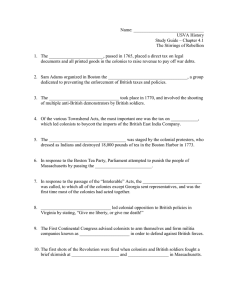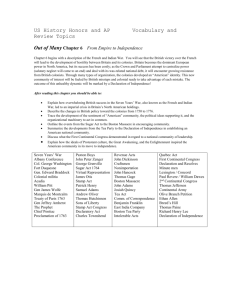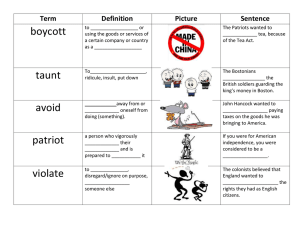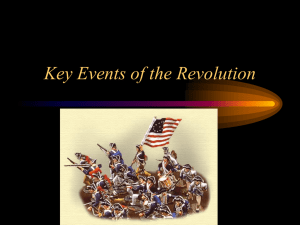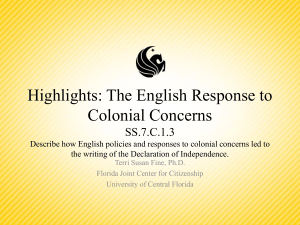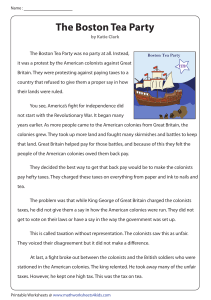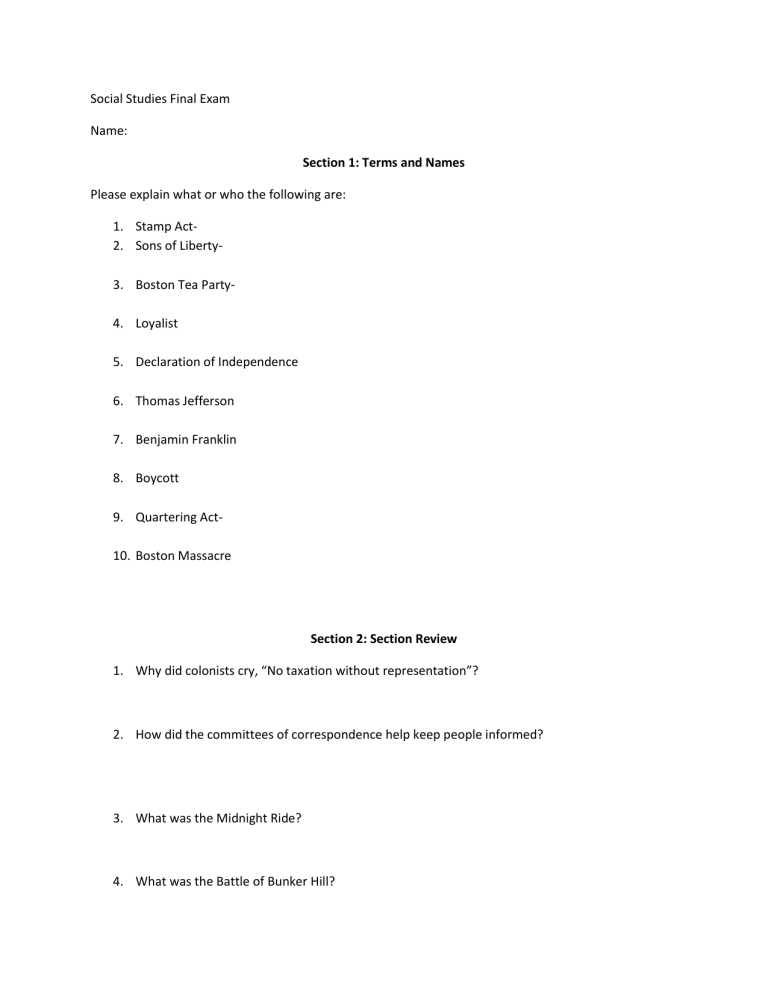
Social Studies Final Exam Name: Section 1: Terms and Names Please explain what or who the following are: 1. Stamp Act2. Sons of Liberty3. Boston Tea Party4. Loyalist 5. Declaration of Independence 6. Thomas Jefferson 7. Benjamin Franklin 8. Boycott 9. Quartering Act10. Boston Massacre Section 2: Section Review 1. Why did colonists cry, “No taxation without representation”? 2. How did the committees of correspondence help keep people informed? 3. What was the Midnight Ride? 4. What was the Battle of Bunker Hill? 5. Do you think the American Revolution would have occurred if Britain had not taxed the colonies? Why or why not. 6. All these were reasons Britain taxed the colonists and enacted laws EXCEPT to raise money to secure peace with Native Americans to control the colonies to maintain its status as a world power 7. The result of the Boston Massacre was hundreds of British deaths hundreds of colonial deaths increased anti-British sentiment the Boston Tea Party 8. To keep the cause of liberty burning, Samuel Adams formed the writs of assistance committees of correspondence First Continental Congress Townshend plan 9. One result of the First Continental Congress was a ban on trade with Britain a declaration of independence the Tea Act the Boston Tea Party 10. It took courage to sign the Declaration of Independence because doing so was an act of treason it incorporated John Locke's ideas it angered the Loyalists it formed the Continental Army 11. The Great Awakening led to the Englightenment appealed to reason led to religious knowledge appealed to religious emotion 12. Enlightenment ideas most influence colonial merchant the wealthy and educated preachers and ministers illiterate colonists 13. The king of England maintained some authority over the colonies through royal governors colonial assemblies salutary neglect the Glorious Revolution 14. In the French and Indian War, Native Americans fought only for the British only for the French on both sides against the settlers 15. One result of Pontiac's Rebellion was the Treaty of Paris Braddock's defeat the Albany Plan of Union the Proclamation of 1763
